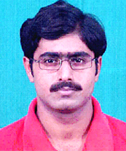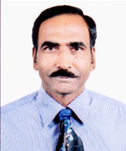Customer Login
Not registered yet?
Register now! It is easy and done in 1 minute and gives you access to special discounts and much more!
TOMATO BREEDING SOLUTIONS CONFERENCE 2023
BACKGROUND
Tomato (Solanum esculentum L.) (Family: Solanaceae), has the enviable distinction with Onion and Potato as “TOP” crops in the agricultural landscape of India. A highly popular and almost a daily necessity in the kitchen, tomato is in high demand throughout the year across the world. A native of Latin America tomato for the first few hundred years was believed to be poisonous across Europe!In India, tomato is cultivated over 800,000 ha annually, with an average yield of 24 t/ha which is far below the productivity in China and other developed countries. Most of the tomatoes produced in India are consumed fresh with only a small percentage (~2%) taken for processing. The advent of heat and leaf curl tolerant hybrids with better keeping quality heralded a revolution in tomato production in India in the last 2-3 decades but market integration and price stability are lacking. Thus, market intelligence and price forecast have been missing links. Farmers often have to face the spectre of apparent glut even with marginal productivity and crop abandonment without even harvesting the crops is observed during February -April every year. On the contrary, at times from June to September retail price of tomato exponentially increase leaving the consumer and policy makers red faced.
Tomatoes in the recent past have remained volatile and the prices are beyond the reach of common people. Reasons can be many and varied in different agro-ecological zones of the country. But what is lacking is a clear understanding of the factors contributing to turbulence in tomato prices and ways to mitigate volatility in the long run. It is not a clearcut case of demand and supply but much more than that. It could be the high temperatures in the peninsular India in summer months and/or break down in resistance to TLCV accentuated by super cyclone in Gujarat and Rajasthan in June and very high precipitation across north India. The insect Tuta and many viruses further confound the problem.




The Foundation for Advanced Training in Plant Breeding (ATPBR*) with its focus on ‘strengthening plant breeding capacity among crop improvement scientists and students’ has taken the initiative to convene a conference of all stakeholders involved in tomato crop improvement, production and marketing in collaboration with the University of Horticultural Sciences, Bagalkot,on November 3-4 2023. The objective of this conference is to let the stakeholders from all sectors deliberate on the tomato scenario in the country, potential causes for the price volatility in the market and formulate strategies to help farmers and consumers in the future.
The meeting aims to address the following aspects:
National and Regional Scenario in Tomato Production and Economics: Participants will analyse: the current status of tomato production in various states, varieties/hybrids that are being grown in the country, interstate movement of the produce, role of middlemen, cold chain availability, packaging used for transportation from farm to retail, adequacy of processing industry to tackle gluts etc. These deliberations can help to identify critical bottlenecks that require attention and improvement.
Climate Change and Tomato Productivity - What We Know and Don't Know: This segment will delve into the impact of climate change on tomato productivity, especially concentrating on the biotic and abiotic stresses faced by the crop, current solutions either under open field conditions and/or protected cultivation. By examining existing knowledge and identifying knowledge gaps, the meeting will pave the way for informed decisions and innovative approaches to mitigate climate-related risks. Focus will be on impact of global warming, unpredictable heavy precipitation, and damage by viral, fungal diseases, soil health and nematode problems.
Analysis of Market through Elasticity and Volatility in Tomato and Mitigation Strategies: A comprehensive understanding of market dynamics, intelligence, and potential glut situations will be discussed. Participants will state current market segments and potential new product profiles and devise effective strategies to manage market fluctuations and optimize tomato distribution to meet consumer demands efficiently.
Tomato Breeding to Address the Challenges of the Future: Breeders and agricultural experts will explore the current status of products in the market and deliberate on presenting the need for development of more resilient tomato varieties/hybrids that can withstand environmental stresses and adapt to changing conditions. Emphasis will be on finding solutions to improve crop yield, quality, and disease resistances to enhance the sowing and harvesting windows of the crop.
These individual sessions will be followed by a Plenary session that will lead to comprehensive discussions and formulation of a concrete action plan to tackle the various issues arising from the presentations. We expect that the stakeholders attending the meeting can forge a path towards sustainable and resilient tomato breeding, production and marketing practices that will ensure stable supply and affordable prices for consumers in the future, and double farmers income too.
REGISTRATION
| Registration Type | Registration Fee | On site |
|---|---|---|
| Public sector | ₹ 3540 | ₹ 5900 |
| Private Sector | ₹ 7080 | ₹ 9440 |
| Students | ₹ 1180 | ₹ 3500 |
| Farmer | ₹ 1180 |
Note: fee includes 18% GST
Anyone interested to attend the conference virtually, please connect via email

Registration fee for virtual/online presence
| Sr No | Registration Type | Registration Fee |
|---|---|---|
| 1 | Professional | ₹ 2360 |
| 2 | Students | ₹ 590 |
| 3 | Farmer | ₹ 590 |
| 4 | Professional from Abroad | $ 50 |
SPONSORSHIP OPPORTUNITY
| S.No. | Detail | Amount (Lac) INR |
|---|---|---|
| 1 | Platinum | 7.0 |
| 2 | Gold | 5.0 |
| 3 | Networking/Gala Dinner | 3.5 |
| 4 | Silver | 2.5 |
| 5 | Bronze | 1.5 |
| 6 | Lunch | 1.0 |
| 7 | Exhibits/Stall | 0.30 |
| 8 | Advertisement | 0.20 |
Note: 18% GST will be applicable on each category of sponsorship, exhibition and booklet insert as per GOI rules
*see the annexure for more detail.
Organizing Committee Members

Mr. Ashok Dalwai
Patron
CEONRAA

Dr. N. K. Hegde
Patron
VCUHS Bagalkot, Karnataka

Dr. K. K. Narayanan
Patron
Co-founder-DirectorATPBR

Dr. S. V. Suresha
Patron
VCUAS, Bengaluru

Dr. Sudhakar Pandey
Patron
ADG, (Hort. Sc.),ICAR, New Delhi

Dr. S. K. Singh
Patron
DirectorIIHR, Bengaluru

Dr. S K Tikoo
Chair -Program Committee
Co-FounderTierra Seeds Sci. Pvt Ltd,
Independent Director
ATPBR

Dr. N. K. Krishna Kumar
Co- Chair
Co-FounderFmr Dy. Dir. General (Hort. Sci.) ICAR, New Delhi,
Member of Advisory Board, ATPBR

Dr. Aparna Tiwari
Secretary
Co- Founder, DirectorATPBR

Dr. Tushar Kanti Behera
Member
Director,IIVR- Varanasi

Dr. Maheswarappa
Member
H. P., Director of ResearchUniversity of Horticultural Sciences, Bagalkote, Karnataka

Dr. Sharan Angadi
Member
DirectorATPBR

Dr. MJV Rao
Member
Advisory committee memberATPBR

Dr. Malathi Varagur Ganesan
Member
Advisory committee memberATPBR

Dr. Krishna Prasad
Member
Breeding & Research LeadTierra Seed Science Ltd,
Hyderabad

Dr. Ravindra Mulge
Member
Dean (Post Graduate Studies),UHS, Bagalkot

Mr. Prashant Belgamwar
Member
Business Director South Asia,Advanta Seeds

Dr. Narendra Singh
Member
Sr. GM R&D,Ruchi Hirich Seeds

Dr. Ashish Patel
Member
Lead germplasm development,Solanaceous crop, APEC, Syngenta

Dr. G.S. Prakash
Member
Fmr Prin. Scientist and Head (Fruit Crops), IIHR
Dr. Naveen Kulkarni
Member
Ex Lead,Biologicals at Syngenta

Dr. Zakir Hussain
Member
Principal Scientist,IARI, New Delhi

Dr. R. D. Rawal
Member
Fmr Principal Scientist and Head (Plant Pathology),IIHR

Dr. B. Fakrudin
Member
Professor & Head, Division of Biotech. & Crop Improvement,College of Horticulture, Bengaluru

Dr. B.S. Harish
Member
Assistant Professor,College of Horticulture (UHS Campus), GKVK, Bengaluru
Organized by
Foundation for Advanced Training in Plant Breeding (ATPBR)in partnership with
University of Horticultural Sciences (UHS), Bagalkot, Karnataka
Venue
The conference will be held at the Auditorium of the University of Agricultural Sciences (UAS),GKVK, Bangalore, Karnataka, 560065
Organizing Secretary:- Email: secyconf2023@gmail.com, Tel: +91 8793988121
Speakers

Dr. Ashok Dalwai
CEO, National Rainfed Area Authority (NRAA),Ministry of Agriculture and Farmer Welfare, GOI

Prof. Ramesh Chand
Honorable Member,NITI Aayog, GOI

Mr. Vilas Shinde
Chairman & MD,Sahyadri Farms

Mr. M. Balasaheb
Progressive Grower,Nashik

Dr. E. Srinivasa Rao
Horticulture Advisor,Government of Telangana and PS, ICAR-IIHR

Dr. Sudhakar Pandey
ADG Horticulture,ICAR,
New Delhi

Dr. Tirthartha Chattopadhyay
Assistant Professor,Bihar Agricultural University, Bihar

Dr. Amulya Kumar Mohanty
Zonal Co-ordinator,ATARI,ICAR, Meghalaya

Dr. Assaf Eybishitz
Senior Scientist,Tomato Breeding

Dr. Ronald Shefleitner
Head of Molecular Genetics,Taiwan

Dr. S.K. Tikoo
Founder & Research Advisor,Tierra Agrotech Ltd. & Independent Director, ATPBR

Dr. H.C. Prasanna
Principal Scientist & Head,Division of vegetable crops,
ICAR- IIHR

Dr. Radhamani Anandalakshmi
Vice President (Research),I & B Seeds Pvt Ltd, Benglore

Dr. Zakir Hussain
Lead Breeder, Tomato,ICAR-IARI, New Delhi

Dr. Sridhar. V.
ICAR-IIHR,Bengaluru

Dr. Umamaheshwari
ICAR-IIHR,Bengaluru

Dr. M. Krishna Reddy
Fmr. Principal, Scientist and Head Division of Crop Protection,ICAR-IIHR, Bengaluru

Dr. Naveen Kulkarni
Ex Lead, Biologicals,Syngenta

Mr. Rahul Gokhale
CEO,Swift Agro, Pune

Mr. Arthur Santosh Attavar
Chairman & Managing Director,Indo-American Hybrid Seeds (India) Pvt. Ltd., Bengaluru

Dr. D. Srinivasamurthy
PS, (Ag. Econ.),ICAR-IIHR
New Delhi

Mr. Chetan Hanchate
CEO,Centre for Processed Food, Bengaluru

Mr. Srinath Gowda
CEO,Kolar Mandi, Karnataka







